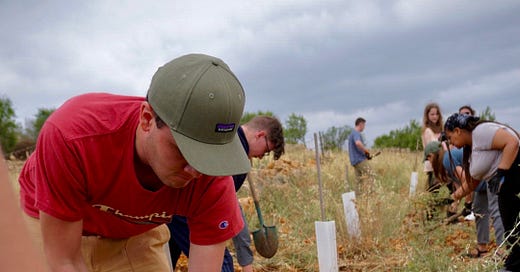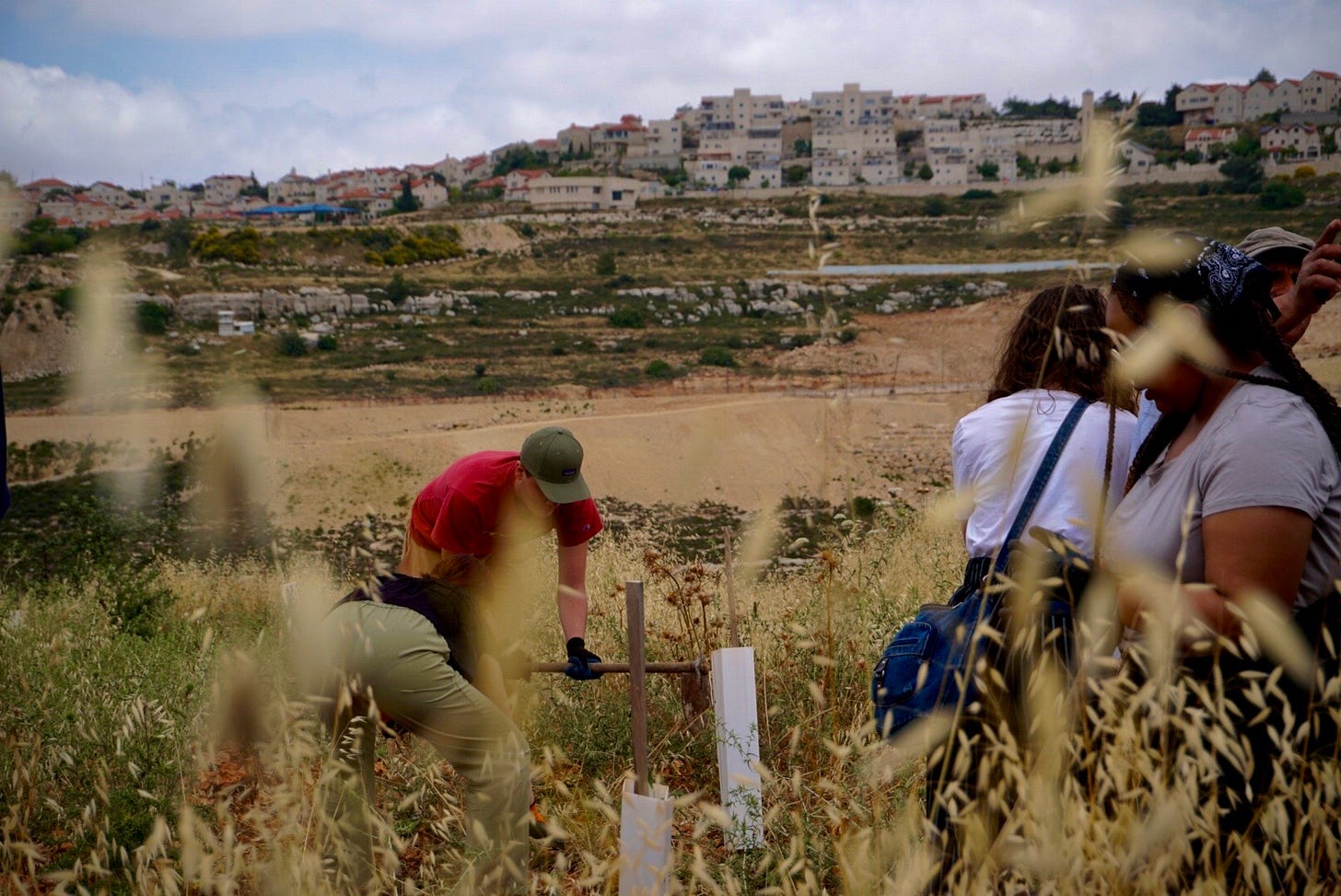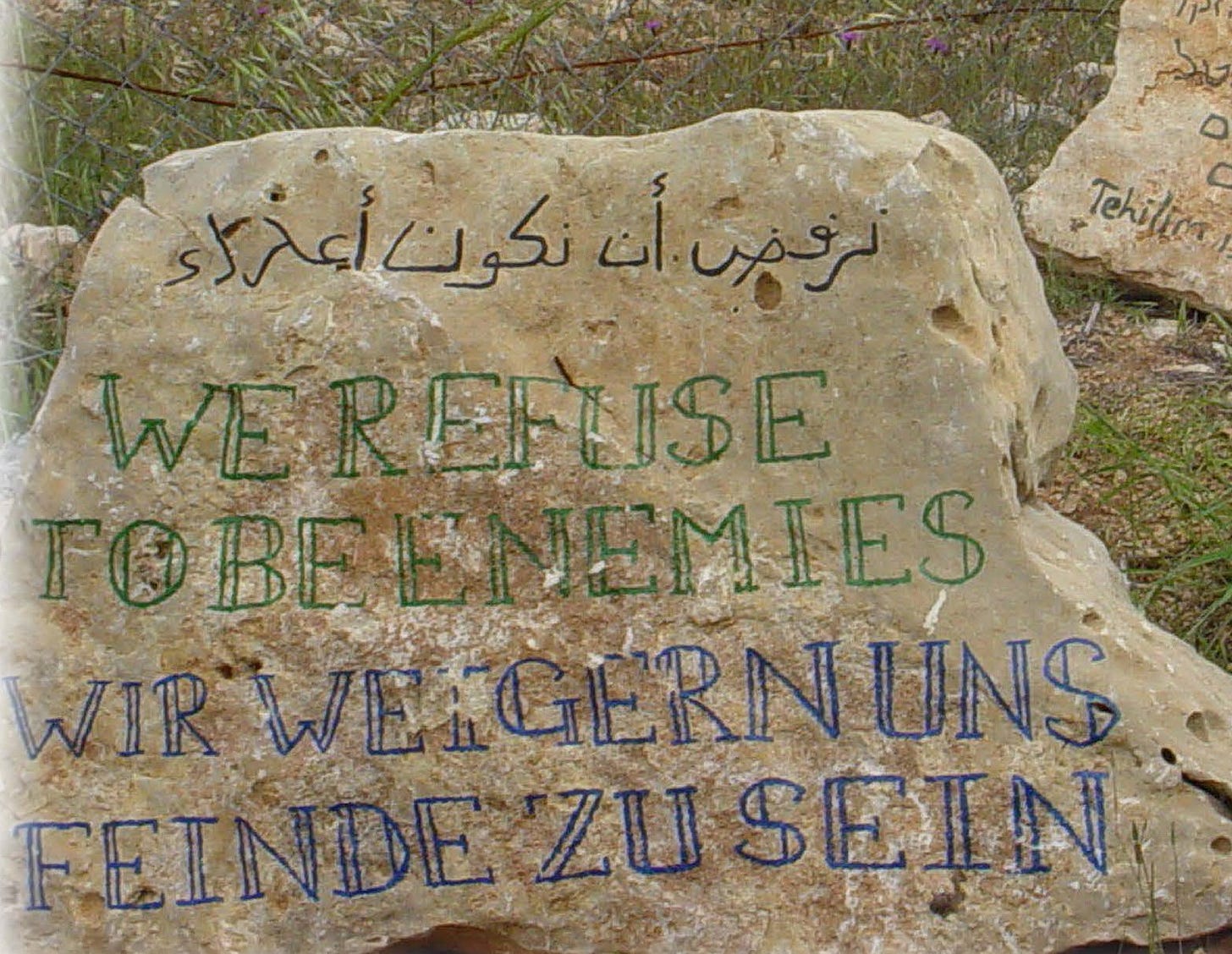What would it be like to have to fight in court for over 30 years for the right to stay on your land which has been in your family since 1916? What if soldiers destroyed your farm, uprooted your trees, and restricted your movement? Would you have the courage to stay?
The Nassar family living on their farm, called Tent of Nations near the Palestinian village of Nahhalin, has been engaged in a court battle for 32 years. The state of Israel has been attempting to annex their land, even though the family has documents detailing their ownership of the land through the rule of the Ottomans, British, Jordanians, and now the Israelis. They have had thousands of trees destroyed by the Israeli government and have been ordered to destroy their means of water collection that is necessary for their own survival. They have also been attacked by extremist settlers all while being isolated from their surrounding Palestinian communities.
They are circled by five constantly expanding Israeli settlements on top of the hills around their farm. Those settlements are internationally recognized as illegal as they are within the Green Line (1949 Armistice Agreement lines after the 1948 war) of the West Bank. However, the farm is not within the border wall that has been erected by Israel. Caught in the Seam Zone (between the Green Line and the Apartheid Wall) the Nassars have faced increasing pressure to move.
According to the United Nations (UN) and numerous human rights organizations, Israeli settlements in the Occupied Palestinian Territories are illegal and must be stopped. Most recently the UN Security Council voted that settlements “had no legal validity, constituting a flagrant violation under international law and a major obstacle to the vision of two States living side-by-side in peace and security.” Yet, on the ground, the settlements keep growing with increased settler presence.
With all these troubles, why do the Nassars stay on their family land? In Arabic, the word sumud (صمود) means steadfastness or resilience. Alain Epp Weaver, in his book Inhabiting the Land, refers to sumud as “steadfast hope within a seemingly hopeless reality.” Sumud characterizes the Palestinian people who have endured through occupation and oppression for years. The Nassar family shows sumud by stubbornly opposing the Israeli government occupation, an occupation attempting to erase their presence from the land.
For over 20 years, Tent of Nations has served as a point of connection and dialogue for internationals who are sympathetic to the Palestinian people. Internationals visit Tent of Nations looking for educational and volunteer opportunities, but they also serve a practical purpose: to help ward off settler attacks. When I visited earlier this summer on a study abroad term in Palestine, despite all of the hardships, the Nassars still held hope. They found hope in 1) the agency of the Palestinian people 2) the peace camp within the Israeli political left and 3) the international community’s ability to change U.S. foreign policy on Palestine.
We heard from brother and sister Daher and Amal Nassar, who are committed to staying in their family’s land. (Yes, I did say “in.” Restrictions forbid them from building any new structures, so they have occasionally lived in the caves on the property.) They have had to work through the Israeli legal system for years to maintain their right to the land, yet it still isn’t over. Every few months they must attend hearings, supply witnesses, and spend time and money to fight the theft of their land.
During our visit, we helped by weeding newly planted olive trees. We used well-worn shovels, spades and pickaxes to dig away the thorny weeds that threatened to choke out the new trees. For each tree that had been uprooted, burnt, and destroyed, Daher told us that two more would be planted. The simple act of planting trees is an act of resistance against the occupation powers that would like to see the farm destroyed. For the Nassar family, daily acts of resistance may look as mundane as planting a tree or weeding a field.
The Nassar family is one expression of resistance and sumud in Palestine. For the length of our trip, we stayed in Beit Sahour, a town bordering Bethlehem. In the First Intifada in 1988, the townspeople became well-known for hiding 18 cows from the Israeli military. The people of Beit Sahour bought the cows as an alternative to Israeli milk. The Israelis then ordered the cows removed. In defiance, the town decided to collectively hide the cows. The story has been turned into a documentary, The Wanted 18, detailing the absurdity of the oppression and the creative ways that Beit Sahour resisted.
In so many places that we visited, we saw both the violence of the Israeli military occupation, but also the resiliency and resistance of the Palestinian people. At Tent of Nations, the Nassar family plants trees and farms the land as they “refuse to be enemies and [they] try to transform [their] pain and frustration into positive actions that will help [them] to create a better future.” Each individual and daily act of resistance to the occupation is a way Palestinians use their power to push for a better future.
Aidan Yoder grew up in Southeast Iowa. He is a student in his second year at Eastern Mennonite University double majoring in History and Political Science.
Please consider a paid subscription to fund these young guest writers.
Please read and follow the work of my colleagues in the Iowa Writers Collaborative:






Courageous people expose the wicked even those who proclaim themselves as democratic and living in the so called "free world!!!"
Thanks Mr. Yonder for saying what must be said.
Ms.Swander,
Thank you very much for publishing this piece by Mr. Yoder.
He and other emerging voices might be interested in the why the resistance is so necessary: <https://ohio5.contentdm.oclc.org/digital/collection/kingcrane/id/1211>
Best,
Delbert Spurlock